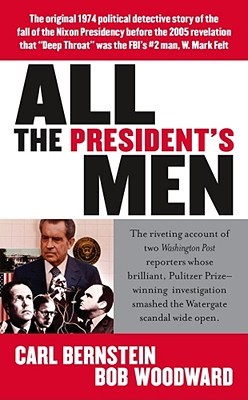By: Robert Avsec, Executive Fire Officer
I’ve been truly fortunate to have a really fulfilling second career as a freelance writer after retiring as a fire department battalion chief. And the journey to get there has been kind of unique but I’m sure most freelance writers would say something similar if asked.

My first chosen career was to become a journalist. When I was finishing high school, it was the time of All the President’s Men (both the book by Bob Woodward and Carl Bernstein, and later the movie starring Robert Redford as Woodward and Dustin Hoffman as Bernstein). I wasn’t nearly as handsome and dashing as Redford, so my goal was to be the next Bernstein!
But after a year of college study, the funds ran out and I had to reassess my future career goals. Ultimately, that led to my first job as an EMT for a private sector ambulance company and later my true 1st career as a firefighter/paramedic with the Chesterfield (Va.) Fire and EMS Department where I would stay for 26 years. (a wonderful job that I loved the last day as much as the first!).
TO BECOME A GOOD WRITER—YOU HAVE TO WRITE
I’m fairly confident that my studies to become a freelance writer began there. Even as a firefighter paramedic, writing skills are important, whether it’s for writing a narrative for a patient care report or an accident report or a paper for a class.
But the necessity for good writing skills really “ramped up” as I began to receive officer promotions (first to company officer, then captain, and then my final promotion to battalion chief). There were still those previously mentioned reports, and to those who were added personnel counseling and evaluation forms, incident reports, accident investigation reports, and reports to supervisors about projects I was assigned to complete.
GETTING AN EDUCATION MEANS–WRITING
During my first career I earned a bachelor’s degree through correspondence courses from the University of Cincinnati (I personally helped keep the U.S. Postal Services solvent in the 1990’s!) and later a master’s degree via early Internet learning through Grand Canyon University in Phoenix, Arizona. Anyone who’s earned a college degree can appreciate the importance of being able to express themselves using the written word.
I would also earn my Executive Fire Officer certification through the four-year Executive Fire Officer Program at the National Fire Academy in Emmitsburg, Maryland. Following my attendance at a two-week course each year, I was required to complete an Applied Research Project (term paper) within six months following the end of a course.
Those four Applied Research Projects (ARPs) really served as a catalyst to improve my writing skills. The goal of an ARP is to take something learned in the in the on-campus course and apply it to one’s fire and EMS department. For example, my third-year class at NFA was Executive Analysis of Fire Department Operations in Emergency Management; my ARP was titled Chesterfield Fire Department Response to Severe Storm Emergencies. (Due to fantastic support from our then Fire Chief, Steve Elswick, my ARP became the catalyst for a project—assigned to me for completion—that resulted in our department’s first written operational procedure for our department’s response to emergencies resulting from severe weather (e.g., severe thunderstorms, tornados, hurricanes, winter storms).
MY 2ND CAREER—BECOMING A FREELANCE
Fast forward to 2012. By that time, I’d begun writing posts from my own blog, Talking “Shop” for Fire and EMS, for about a year. One day I received an email from Rick Markley, then an editor at FireRescue1. In that email, Rick said that he had been reading some of my blogs and he liked my writing and asked “Would I be interested in creating content for FireRescue1?
When I was still doing editorial assistant jobs NYC, I jumped on that opportunity—which continues to the present day—with all the writing experience that I could muster. But the job forced me to further develop and refine my writing skills to accurately represent FR1 to the fire service audience. Rick’s editorial guidance and direction were invaluable in that improvement process. Only after writing for Rick and FR1 for a year or so did I truly feel like I had become a capable freelance writer.
Since then, I’ve had the good fortune to work with equally skilled and caring editors at FR1, like Greg Friese, Kerri Hatt, and now Janelle Foskett. Each of them consistently challenges me to continue to refine my writing skills.
Another opportunity within the FR1 “family” came when my name was given to the folks in the Branded Content section for whom I began writing articles for companies that contracted with FR1 to produce content for their website and other marketing media (e.g., brochures, eBooks, and white papers). Working with editors like Laura Neitzel, Rachel Zoch, Mary Rose Roberts , Sarah Calams, and others, I learned how to effectively write articles that those companies found useful in promoting and marketing their products and services to fire and EMS departments.

And it only continued to get better as my work for those editors at FR1 brought me to the attention of Star Franz and her colleagues, Jenny Ashley, and Holly Bluett, at FR1’s online FireRescue1 Academy. That work involved writing content in the form of one-hour modules (about 8000 words for each module) to provide continuing education level content for firefighters.
I’ve always felt that no man or woman is truly “self-made” in this world. And my experiences as a freelance writer over these past 8 ½ years has only served to solidify that opinion for me. Because without the caring guidance and direction and feedback from those writing professionals I’ve mentioned, I wouldn’t be half the freelance writer I am today!
 Fire & EMS Leader Pro The job of old firefighters is to teach young firefighters how to become old firefighters!
Fire & EMS Leader Pro The job of old firefighters is to teach young firefighters how to become old firefighters!
